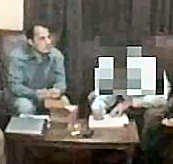 No big news today, so it’s time for another Export Law Blog grab bag:
No big news today, so it’s time for another Export Law Blog grab bag:
- In connection with President Obama’s upcoming trip to India, negotiators for India are demanding the removal of the Indian companies that are on the Entity List maintained by the Bureau of Industry and Security (“BIS”). Given the prior history of some of these entities trying to obtain U.S. exports illegally notwithstanding their presence on the Entity List, I’d call this demand a long shot.
- The Office of Foreign Assets Control (“OFAC”) issued a final rule yesterday implementing the import ban provisions of the Comprehensive Iran Sanctions, Accountability, and Divestment Act of 2010 (“CISADA”). As expected, the general licenses for imports of Iranian foodstuffs and carpets were removed from the Iranian Transaction Regulations. Relying on the regulatory exception power granted to OFAC in section 103(d)(1) of CISADA, all general licenses other than those for foodstuffs and carpets, such as the general license for household effects, remain in effect.
- Congressman Dale Kildee, Sen. Carl Levin and Sen. Debbie Stabenow from Michigan on Tuesday sent a letter to BIS asking it to reverse a decision denying Michigan-based B&P Process Equipment a license to export an industrial vertical mixer to Taiwan. The mixer, which can be used to mix rocket fuels, has raised concerns by BIS that “the export presents an unacceptable risk of contributing to activities detrimental to U.S. foreign policy, including our missile nonproliferation interests.” The Senators and Representative argue in their letter that if B&P is not allowed to export the equipment, a foreign company will sell its own similar equipment to the company in Taiwan. My guess is that the BIS objection is really coming from the Department of Defense and that the Congressional letter will have about as much effect on the DoD’s position as a toy pistol fired at an aircraft carrier.

 Posted by
Posted by  Category:
Category: 




 Last week, the Department of Treasury’s Office of Foreign Assets Control (“OFAC”) published a
Last week, the Department of Treasury’s Office of Foreign Assets Control (“OFAC”) published a 

